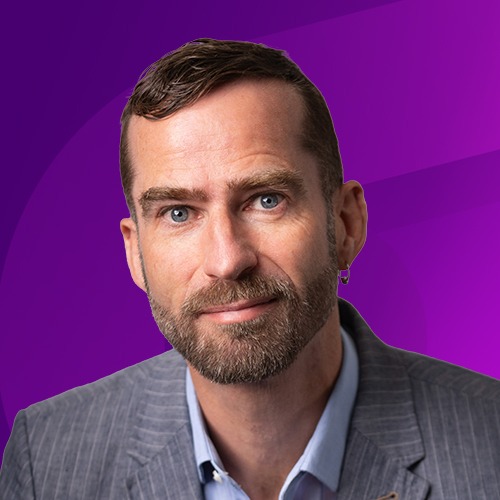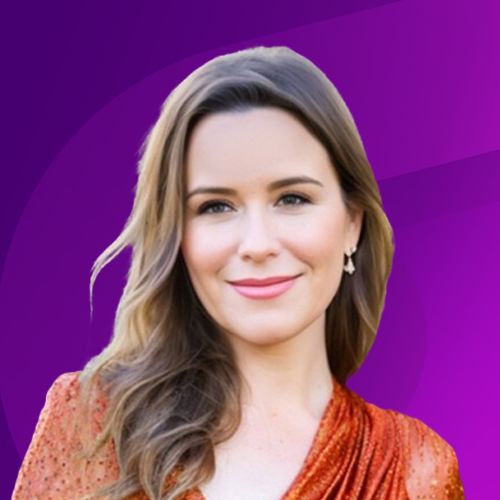
As the operating landscape continues to experience rapid evolution, organizations are increasingly acknowledging the importance of a strong Risk and Resilience strategy. iluminr’s Gamechangers in Resilience interview series highlights the innovative change leaders who have enabled their organizations to flourish in the face of unparalleled disruption.
In recognition of Women’s History Month, iluminr is celebrating the accomplishments of women who have played a significant role in enhancing the resilience of our organizations and communities.
Meet Angelina Chavez, business resiliency and process improvement innovation leader with remarkable talent for driving organizational growth and resilience through continuous learning.
Currently serving as a Program Manager at PenFed Credit Union, Angelina has a deep understanding of risk management principles and has a demonstrated ability to implement robust strategies to ensure operational resilience. As a program leader, Angelina excels at identifying opportunities for process optimization and implementing new technologies to enhance efficiency.
Angelina is a true strategic thinker and natural problem solver with strong leadership skills and the ability to build and motivate high-performing teams. The iluminr team has worked closely with Angelina in understanding the unique aspects of resiliency in the credit union community and she is a featured voice in our thought leadership. Angelina embodies the change champion we all aspire to be. We are thrilled to feature her as a Gamechanger you should know.
Q: How did you end up in the field of Resilience?
A: I had senior leaders that saw my instincts as valuable to the organization. My career took off because of their investment in me. I had access to training and mentorship. That made all the difference.
Q: You have a particular passion for Resilience and Program Management. With Resilience teams faced with an abundance of priorities, what advice would you give teams that are looking to stay focused and on track with the right things?
A: Always make sure you focus on the people first. Relationships are the key to proper execution. Relationships equal success.
Building strong relationships is an essential component of achieving success in any endeavor. This is because, at the heart of all business and personal interactions, there are people. Whether it’s dealing with colleagues, clients, or customers, it’s important to remember that people are the driving force behind any successful relationship. Therefore, to properly execute a project or achieve a goal, it’s essential to prioritize building and maintaining positive relationships.
When it comes to building relationships, communication is key. Take the time to listen actively to others and engage in meaningful conversations. Show genuine interest in their ideas, perspectives, and needs. This will help you build trust and establish a foundation for a strong relationship.
Strong relationships can also help you gain valuable insights and perspectives that can improve the execution of your project or goal. By cultivating relationships with people who have different backgrounds, experiences, and skills, you can broaden your horizons and develop a more well-rounded approach to problem-solving.
Finally, remember that relationships are a two-way street. Make sure to reciprocate the effort that others put into building a relationship with you. Show appreciation for their contributions and offer your help and support in return. By fostering positive relationships and valuing the people involved, you are setting the stage for success in all your endeavors.
Q: How are you a different leader now than you were prior to the pandemic?
A: The pandemic gave new meaning to the word agile and put every skill to the test.
The biggest take away was the understanding that things would change, and I needed to assess what we did well and where we missed the mark.
Q: We are celebrating Women’s History Month. How has being a woman influenced your career experiences?
A: I have a natural desire to teach and encourage personal growth. I believe that makes me a strong mentor for younger professionals in my organizations.

Q: What advice would you give women who are earlier in their career journey?
A: Be ahead of the curve and keep abreast of all the latest trends in your industry. Trends may not apply to your position, but knowing provides insight into what might be next.
Following trends can help you anticipate challenges and opportunities, make informed decisions, and adapt quickly to changing circumstances. By keeping an eye on emerging technologies, market shifts, and consumer preferences, you can identify potential threats to your organization and develop strategies to mitigate them.
Additionally, by staying informed about the latest best practices and thought leadership in your field, you can continue to refine your leadership skills and ensure that you’re providing the most effective guidance to your team. Ultimately, following trends is an essential part of being a successful and resilient leader in today’s fast-paced and ever-changing business landscape.
Q: What advice would you give to teams who are looking to be more diverse and inclusive?
Some of my best employees had no idea what resiliency meant, but their desire to learn and their willingness to be honest made them the best teammates and employees. I would encourage anyone looking to grow a diverse team to listen to and encourage sharing ideas across your organization.

Q: What is the leadership playbook you are writing for yourself in real-time?
A:
Opportunity Is A Verb
We are in a season of constant change and never ending shifts that require those in our industry to be more than proactive. It is time that we create our opportunities and look to the future. We must stop wishing for innovation that makes us more resilient and start being the catalyst for technology companies to help us create those innovations.
Q: What is the hardest part about leadership in crisis?
A: Leadership is having the patience to weather the storm and the presence of mind to lead by example. A crisis is an opportunity to uncover your next leaders, and it will put a spotlight on undiscovered talent. As leaders, we must always look for people with passion and creativity to help navigate the crisis.
Q: How do you apply the lessons of Resilience in your everyday life?
A: Resiliency in life is a process. It is what you know, what you learn, how you adapt, and trusting that process that makes you strong.
When I think of what it means to be resilient, I often think of my Mom and Grandmother. They migrated to this country with just enough to get by day by day. They made it and provided opportunities for my generation that they never had.
When I think about my job now, I realize more and more that resiliency is all about the human spirit and the desire at our core to always be of service.














